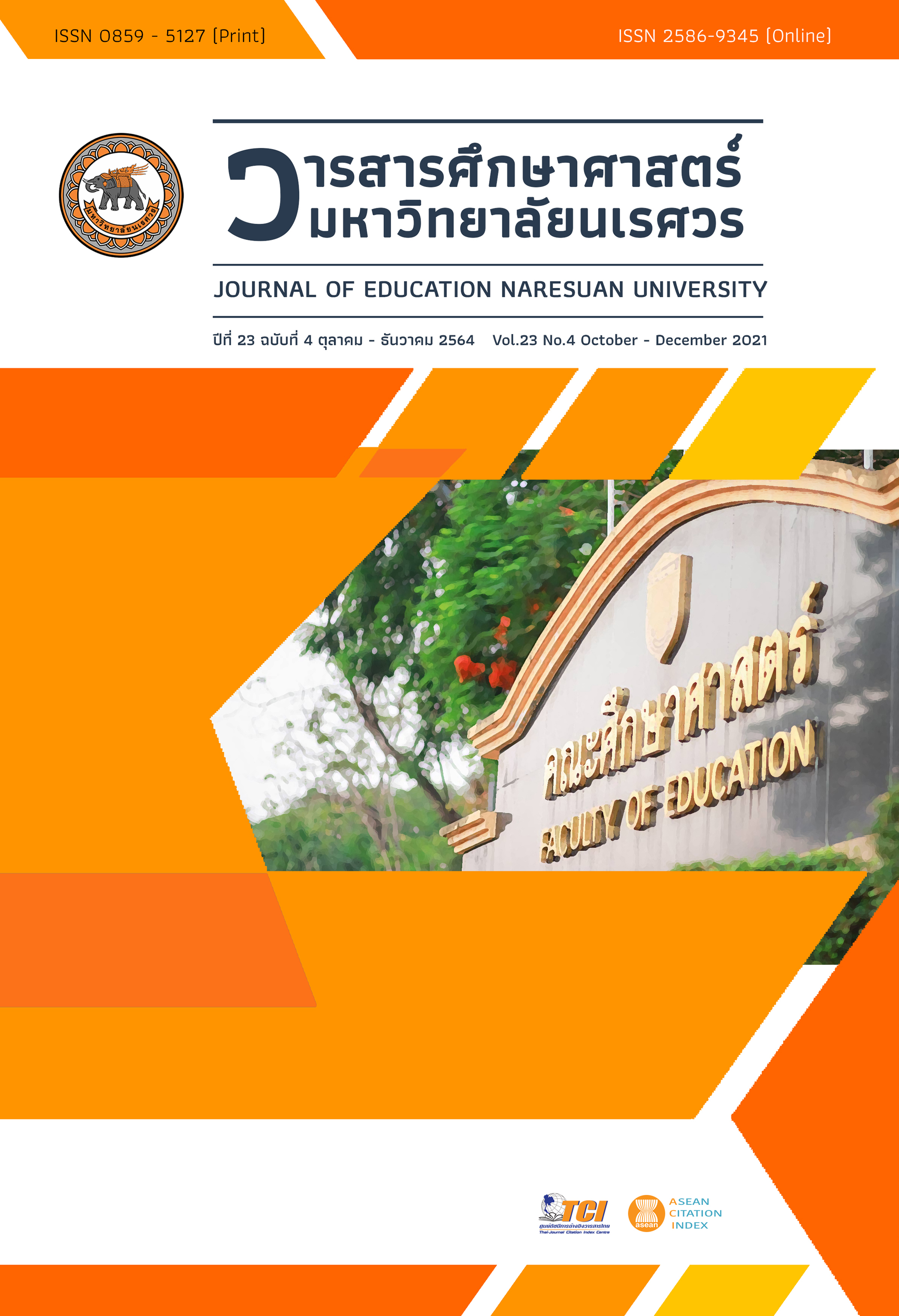ART TO DEVELOP OF SUCCESS LIFE SKILLS FOR PRESCHOOL CHILDREN ศิลปะเพื่อพัฒนาทักษะชีวิตสู่ความสำเร็จสำหรับเด็กปฐมวัย
Main Article Content
Abstract
The purposes of the present research were to 1) to study the development of Brain Executive Functions: EFs skills for preschool children during art activities to develop life skills to be successful, 2) to study a comparative study of the results of successful life skills development before and after the art activities to develop life skills to success using the PDCA process for preschool children, and 3) to study the relationship between brain executive functions (EFs) and life skills to success for preschoolers. The samples were 17 preschool students in Kindergarten 3 at Anubran Krok Phra School, Krok Phra District, Nakhon Sawan Province. Tools used for data collection consisted of 1) the art lesson plans using the PDCA process to EFs skills development. Have the Item-Objective Congruence Index (IOC) at 4.691 ( = 4.691), 2) the behaviors observation form of EFs skills. Have the Item-Objective Congruence Index (IOC) at 1.000, and 3) the behaviors observation form of success life skills for preschool children. Have the Item-Objective Congruence Index (IOC) at 0.889. The results of this research were as follows: 1) High developed skill score respective for EFs proficiency, Students have EFs skills points during the first week of experiment 35.945 % and 48.366 %, 57.081%, 66.756%, 76.251%, 85.403% respectively, 2) before using 18 lesson plans of EFs skills development for the art by PDCA process students have successful life skills a total of 26.717 (
= 6.412) and After students have life skills to success a total of 77.942 (
= 18.706) the correlation were significantly in high level related at the .05 level, and 3) the correlation coefficient values between Brain Executive Functions: EFs and skills to success no statistically correlated at the significance (r = 0.344).
Article Details
The owner of the article does not copy or violate any of its copyright. If any copyright infringement occurs or prosecution, in any case, the Editorial Board is not involved in all the rights to the owner of the article to be performed.
References
Bereiter, C. (1970). Child development and personality (3rd ed.) by Paul Henry Mussen, John Janeway Conger, and Jerome Kagan. New York: Harper & Row.
Brain and Life Center. (2017). Learning Skill. Retrieved on May 3, 2017, from https://www.brainandlifecenter.com/brain-learning-skill
Bransford, J. D., Brown, A., & Cocking, R. R. (1999). How people learn: Brain, mind, experience, and school. Washington, DC: National Academy Press.
Chutapakdeekul, N. (2017). Mahidol University found that 2-6 year-old children have 30% of their behavior defects. Retrieved on June 3, 2018, from https://www.isranews.org/main-thairefom/51865-ef.html [in Thai]
Chutima, A. (2009). Student's life skills management at Nandachart Grade School, Hang Dong District, Chiang Mai Province (Master thesis). Chiang Mai: Graduate School Chiang Mai University. [in Thai]
Coyle, D. (2009). The talent code: Greatness isn't born. It's grown. Here's how. Canada: Random House Publishing Group.
Khochpakdee, N. (1997). Develop your brain to be super intelligent (9th ed.). Bangkok: Publishing Plan. [in Thai]
Laumkha, R. (2014). Life skills of preschool children: A core of life that can be strengthened by family. Journal of Research for Social and Community Development, Maha Sarakham Rajabhat University, 1(2), 33-44. [in Thai]
Nopakhun, C. (2018). The development of executive function for 21st century preschool children through Montessori approach. Journal of Education Silpakorn University, 16(1), 75-90. [in Thai]
Prarintapolkanpim, P. (2017). What to do when the small person is short of attention. Retrieved from https://www.bangkokhospital.com/th/disease-treatment/executive-functions-develop-childrens-concentration [in Thai]
Phonchewin, et al. (1997). Learning theory for development of aesthetics and habits to present the learning model in theory and practice: Art, music and physical education. Bangkok: Office of the National Education Commission. [in Thai]
Rakluke Learning Group (2018). EF (executive functions). Retrieved December 12, 2018, from https://www.rakluke.com/brain/ [in Thai]
Raksee, N. (2018). The development of a program for promoting brain skills for executive cognition Through sensory integration activities in preschool children National Institute for Child and Family Development Mahidol University. Retrieved on June 23, 2018, from https://op.mahidol.ac.th/ra/2018/08/15/cf_2561-06/ [in Thai]
Thanasetkorn, P. (2018). Develop brain skills with EF executive functions in children ages 7-12 years. Bangkok: Letterpress Publishing Company. [in Thai]
Wikipedia. (2019). Critical period. Retrieved on June 23, 2019, from https://en.wikipedia.org/wiki/Critical_period [in Thai]


